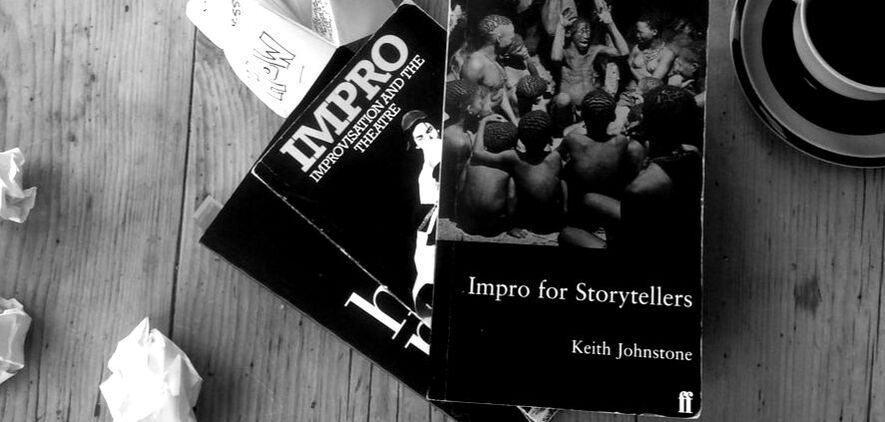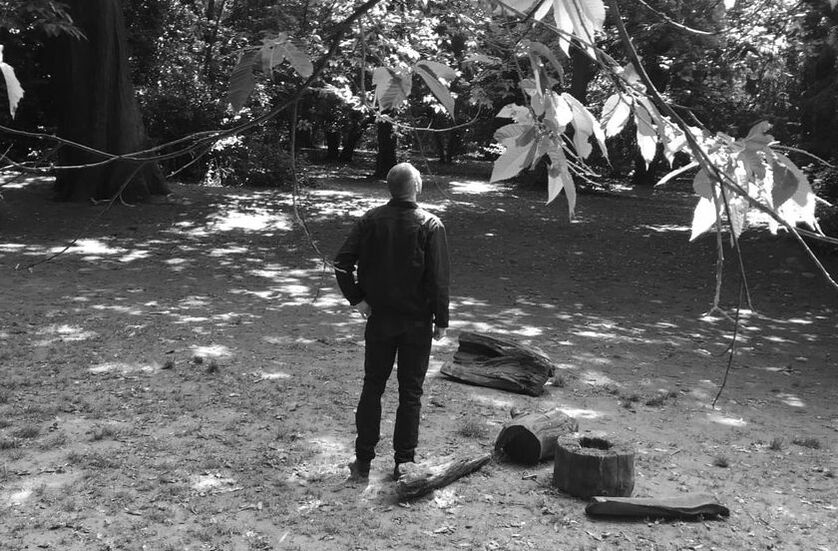|
The Pep Guardiola of Improvisation Writing a play in seven days God, the bastard, had a day off. No such luck for a scribbler As it has for many, the lockdown day has been punctuated with a daily walk: sometimes along the Thames, sometimes through Chiswick House Grounds, sometimes towards the vacant city; sometimes alone, and sometimes with one or more members of our family. Somedays, my body has walked carrying a head weighted with worry, things were seen but not looked at. Other days, what was witnessed made the walk, or, in a few instances, made the day, unforgettable. Walking may be a form of exercise, but, it is also a mode of discovery. The eyes take in things, stringing them together to make a narrative, or searching through them to explore memories that lay dormant. Also, the pace and the rhythm can throw up unexpected, new, or bizarre thoughts. My natural pace for walking, described by a friend of mine - a keen walker and cyclist - as only just moving, is slow, reflective. On one particular walk, Abraham and I chose Chiswick House. Once there, we decided to search out the old bowling green, a spot - despite being freighted with memories - neither of us had visited for many years. When Abraham was a small boy, we held his birthday parties here. Him being a summer born child, we were usually accompanied by good weather for the games, picnic, and treasure hunts that were staged. This particular morning, the sun was shining and the day, still carrying the last traces of a cool night’s edge ,was beginning to warm. The light was beautiful, as it is so often in these grounds: dappled, mottled light beams, shadow, and rich openings of morning sunshine. Stepping from a thicket into this familiar place, we were both struck by the way that memory held it in different proportions. It seemed to have shrunk. We wandered around the sheltered space, each studying the shape of it, the scraggy grass, the huge trees; not talking but listening for echoes from the past. Time passed, and turning to each other, we both spoke the same thought: What a great natural spot for a piece of post-Covid theatre. Reflection was jettisoned by our animated excitement and we began to chuck around ideas: what story, what characters, how spectators would interact with the piece etc. By the time we returned home, we had two characters, a broad outline of their histories, and what was the starting point of the play. We then made a decision that made the writing of the play so much easier than it normally is, and, that resulted in a first draft being finished within a week. There's something out there... We decided to return to this space for few hours each day, to try on our characters and improvise. Neither of us had made a play in this way before. There was the thrill of novelty, but also the fear of exposure, disaster and sterility. We decided we would start at 9am the next morning, a time that the grounds would be relatively quiet, mostly dog walkers, runners and insomniacs. We cycled there, lay a phone on a stump, pressed record and began. Abraham had expressed his worry about being a ‘good’ improviser but fifty minutes passed before, stumbling so drastically, we searched out the time. Keith Johnston, writer of the seminal books Improv and Improv for Storytellers , the Pep Guardiola of improvisation, implored that an improviser should be average, normal, and steer well clear of trying your best. I’m not sure that Pep, leaning close to Raheem, whispers in his ear, Be normal, (not for £300,000 a week) but there is some truth in it . Consciously trying your best is doomed to failure, and we live in a culture that doesn’t cultivate failure. Failure is where we learn most, and trying too hard tenses you up. Abraham and I had reassured each other that what we did, the words spoken, were tentative, free from censure, and not worth worrying about. Of course, reassurance only goes so far. We were both nervous, worrying about whether what we were doing was any ‘good’ and, most self-consciously, whether we were just recycling the last play we made together. There were also the unexpected interruptions of working in a public place: dogs bounding through, people bellowing on mobile phones, the joyful singing and laughter of a nursery group, the panting joggers, and people who stopped and watched as we handed each other imaginary things. Most notably, there was the grey Weimeraner that padded through the space, sniffed at the phone recording us, cocked his leg, and narrowly missed arching his piss all over it. We returned at the same time each day, four in total, and by the end of it we had almost four hours of dialogue. The story we had decided upon was a coming together of a father and his estranged son. The son, despairing at the damage done by his father’s dependence on alcohol, had moved away, physically, successfully, and emotionally, well that was the work in progress. Each session had begun differently: the first day, the father arrived first, waiting, expectant; the second, the son arrived first, apprehensive and defended; the third day we had them arrive together from opposite directions, no time to display and conquer their anxieties; the final day, we started in medias res, resentments fuelled, misunderstandings woven and hope dying. Our next task was to wade through the thousands of words that had poured out of us and see what was worth keeping. What ideas, backstories had been introduced, that were worth further exploration? Were there any sequences of dialogue that, with a bit of snipping and shaping, we could transcribe into a script? We sat at either ends of our dining table, a shared document open, and listened. We discussed and made notes on what we cherished, laughed at what was odd and insignificant, and began typing: You’re late Mostly, in writing the script, we would be sat opposite each other, working from the beginning, writing our character’s next line, reading the response and typing. Occasionally, one of us would get up to make coffee, grab something to eat, or tend to a paid-work related chore; the other would plough on, taking on the lines of both characters. At times, we passed the baton. Demands from beyond the page, would mean that I or Abraham had to go out for a few hours, or an afternoon. In the other’s absence we would continue writing until the other returned. The script would be read, and either, the joint writing would be resumed, or the returnee would write the next couple of pages alone. We weren’t as quick as the imaginary bloke upstairs. We didn’t rest on the seventh day. Rome wasn’t built in one etc. We rose early and finished late, but we finished a script seven days after we had first stepped onto the bowling green. It won’t be seen by as many people that traipse through the Pantheon in a couple of hours, it may not be seen by anyone at all, but we had a lot of fun and it was a real collaboration. The second draft is waiting…
6 Comments
|
Writing into the dark Read More...
February 2024
Categories |
Proudly powered by Weebly

